Why bosses and politicians still come to Davos
- Published
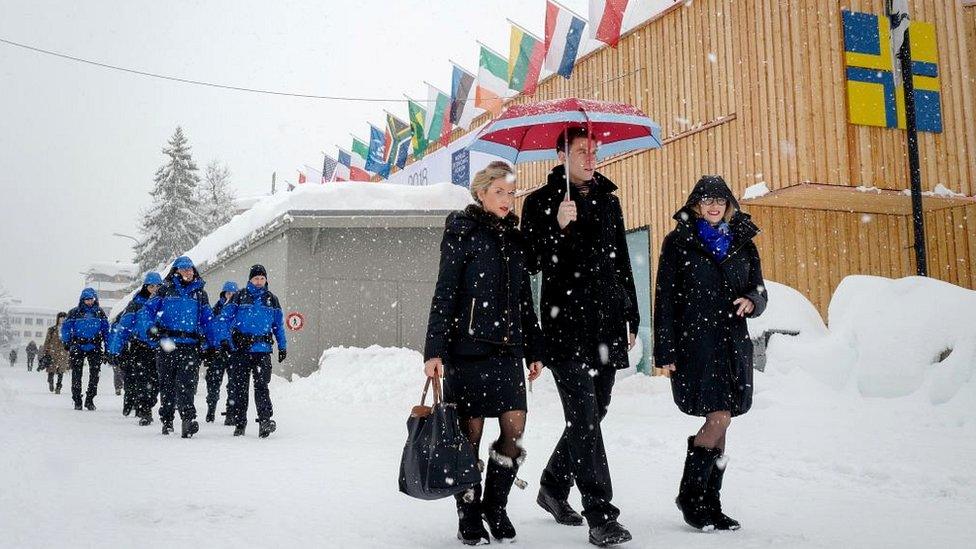
Davos's guest list this year will put the small Swiss town in the spotlight once again
Just a few years ago, it was fashionable in January for journalists to pen pieces announcing that the Alpine gathering of the so-called global elites, the World Economic Forum (WEF) in Davos, was waning in influence, and that the era of policy via cocktail parties was over.
Fewer and fewer A-listers were attending the WEF, the argument invariably went, and the young, agile start-ups that were "truly" changing the world eschewed the annual event, preferring their own conferences, which were often cheaper and more accessible.
This year, the WEF has silenced its critics - with an all-star line-up that will once again put the small Swiss town in the spotlight.
The headlines will be dominated by Donald Trump, who is due to make his inaugural visit to Davos on Friday, and is bound to set the cat among the pigeons - his "America First" message at odds with the globalist politicians, business chiefs and bankers that make up the bulk of attendees.
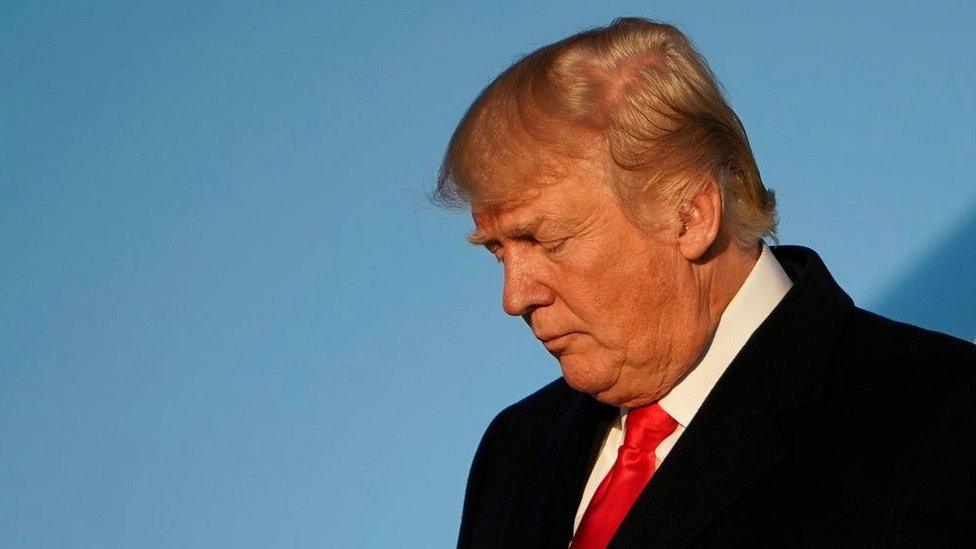
It is the first time in almost 20 years a sitting US president has attended
Mr Trump will be joined by world leaders such as Emmanuel Macron of France, the UK's Theresa May, and Angela Merkel of Germany, as well as the usual cavalcade of chief executives, including Alibaba's Jack Ma and JP Morgan's Jamie Dimon.
The conference, founded in 47 years ago by economist Klaus Schwab, would appear to be in rude health.
What is an IGWEL?
But it's not all about star power.
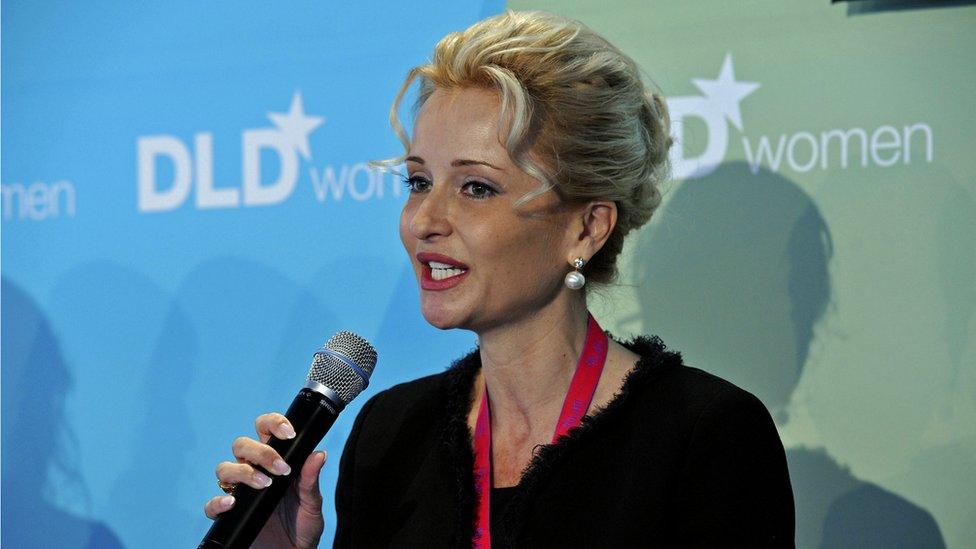
Davos provides a safe place for business and political leaders to meet, says Sandra Navidi
Although the snowy WEF backdrop will be more prominent on screens around the globe this year, Davos' durability is due in no small part to what takes place away from the public glare, in hotel corridors and crowded cafes, and in closed-door sessions far from prying cameras and microphones.
"The WEF," says Sandra Navidi, whose book Superhubs details the hobnobbing habits of financiers the world over, is "perhaps the most effective and powerful network platform and incubator of our time".
Crucially, she adds, it provides a backdrop for heads of state, policy makers and business leaders, who may not otherwise be able to meet in person, to do so, without fear of exposure.
Of these meetings, the most exclusive are known as IGWELs, a typically Davos acronym for "Informal Gatherings of World Economic Leaders".
These are restricted to the likes of prime ministers, foreign and finance ministers and central bank governors.
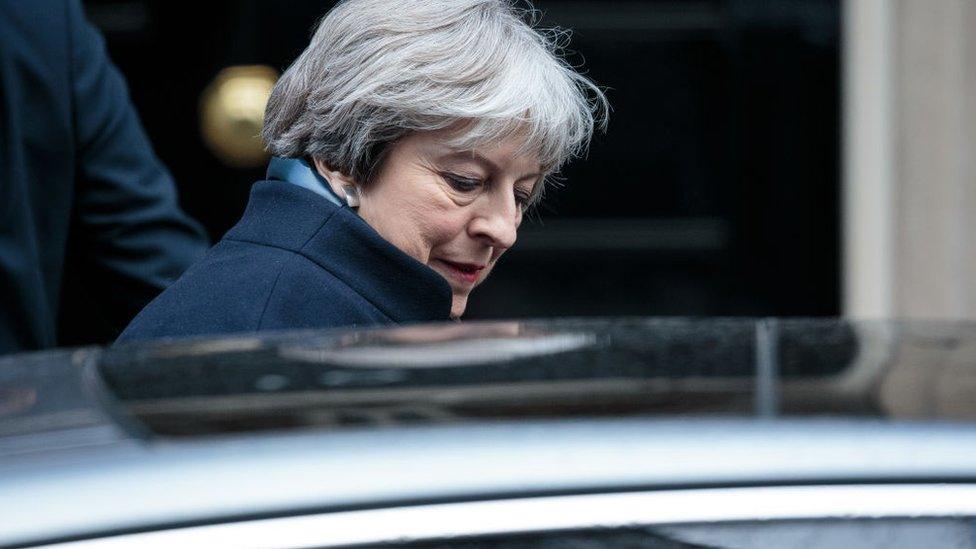
Downing Street said Theresa May and Donald Trump's meeting would take place "in the margins" of the forum
This year, Theresa May and Donald Trump are scheduled to meet behind the scenes, at a time when a visit by the latter to the UK is being kicked in to the long grass, and plenty of others will do the same without anyone other than a small group of organisers being any the wiser.
Comparing notes
And it's not just the politicians who are at it.
"Financiers meet their peers to compare notes on the industry and discuss mutual interests such as deregulation," says Ms Navidi, "a topic that they can raise directly with regulators and policy makers in attendance."
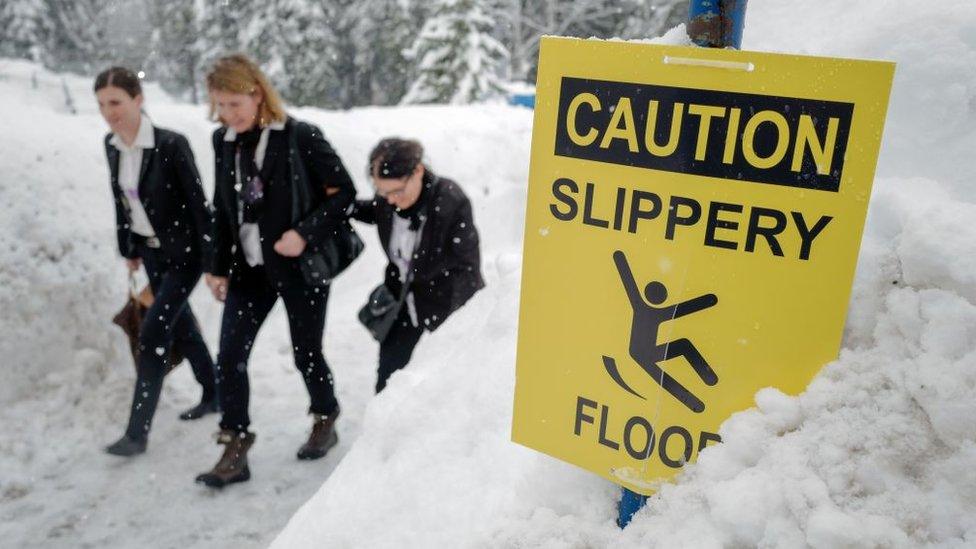
Meetings at Davos are often the seeds of mergers and acquisition deals in years to come
Other meetings are more exploratory in nature - an attempt at "building relationships", to use a well worn Davos phrase, that may become mutually beneficial over time, and often are the seeds of mergers and acquisition deals in years to come.
"It's an opportunity to see what others are doing," says David Fergusson, chief executive of The M&A Advisor, who is attending for the fourth year in a row.
Mr Fergusson points to a formal relationship between Swiss cyber security firm WISeKey and the Rwandan government, which began at a Davos breakfast in 2016 with the country's President Paul Kagame.
Over orange juice and croissants, Mr Kagame invited companies such as WISeKey to bring technological innovation to the east African country, where they would find a receptive government and business community.
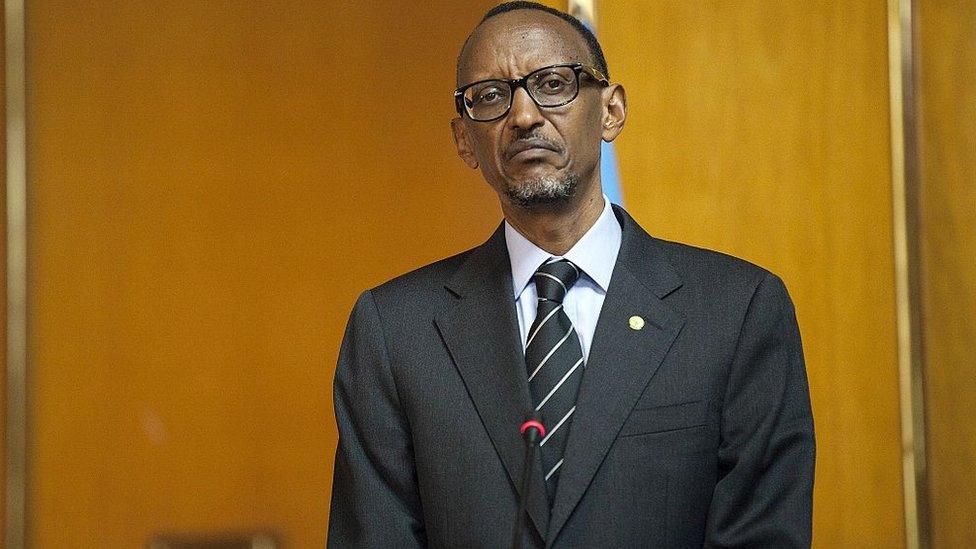
A relationship between cyber security firm WISeKey and Rwanda's President Paul Kagame began at Davos
Just over a year later, WISeKey announced it would use blockchain technology to build a reliable land registry in the Rwanda.
Tech interest
The success of this project, Mr Fergusson says, is "100% attributable to the convergence of organisations, people and mutual interests in the mountains of Switzerland".
Young tech firms are no longer turning their nose up at the older Davos crowd, he adds, especially those looking for an injection of cash.
"In 2014 less than 15% of all tech company acquisitions were made by non-tech companies," he explains. "Last year it was 58%".
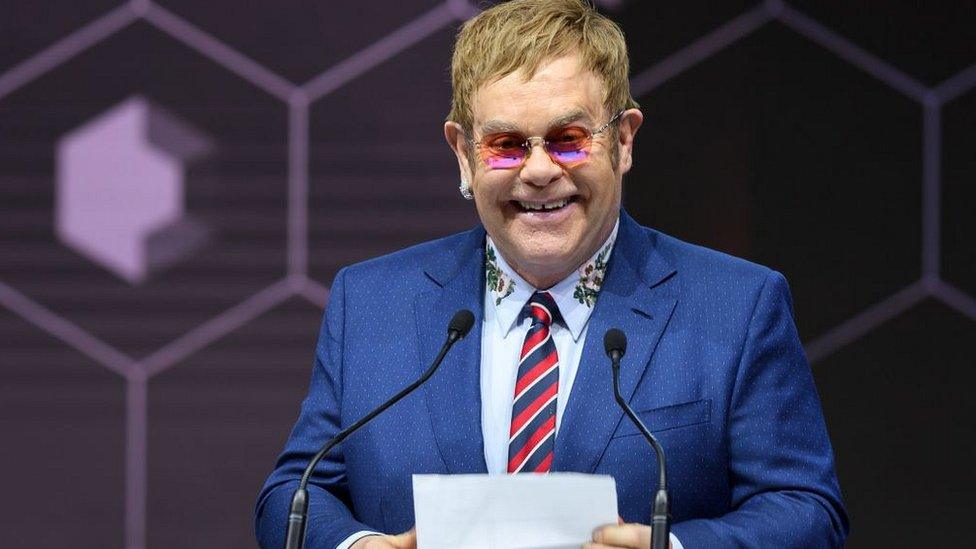
And it's not just politicians and business leaders: This year singer Sir Elton John and actor Cate Blanchett are among the attendees
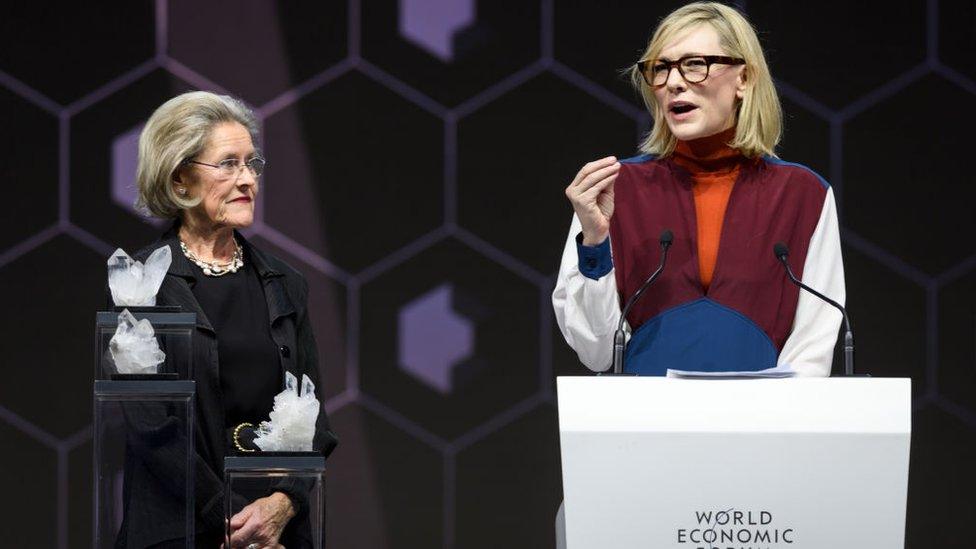
"Davos is becoming the assembly of the developers of, financiers of, and policy makers who influence - technology."
For those who don't have back-to-back meetings scheduled on Davos' snow-covered Promenade, there is one more incentive for making the trek up the "magic mountain" - serendipity.
There's always the chance of meeting a future investor in the queue for the cloakroom, or in the ready-made networking pods that are the black WEF shuttle buses that ferry delegates from function to function.
Just don't forget your business cards.